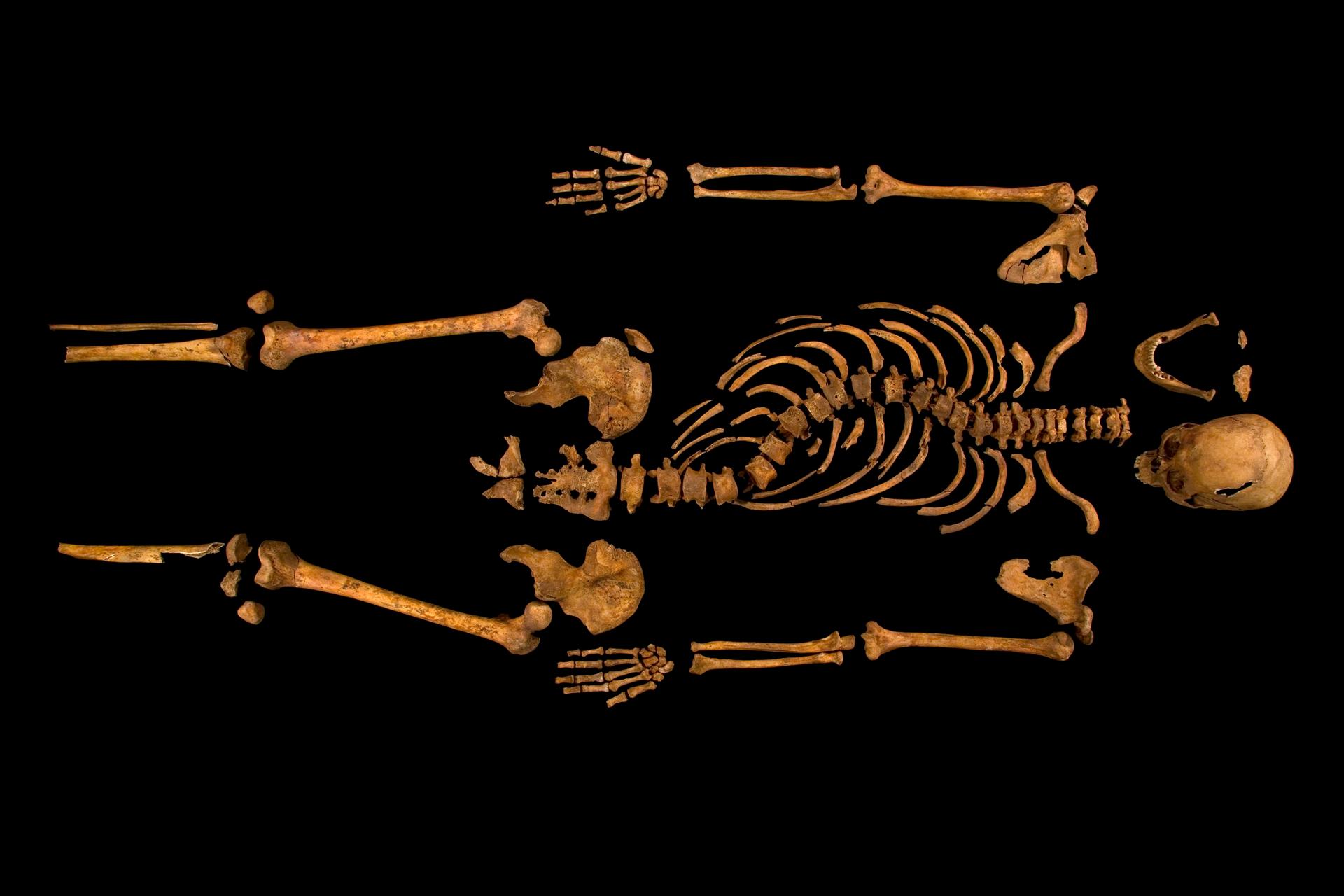Mystery skeleton is King Richard III, archeologists confirm
The skeleton identified as belonging to King Richard III, showing the deformity of his spine.
Archeologists have finally answered a question that puzzled historians for more than 500 years: whatever happened to Richard III, king of England between 1483 and 1485?
DNA tests have confirmed that bones found last year under a parking lot in Leicester, central England, are indeed Richard's final remains.
"Beyond reasonable doubt, it's Richard," lead archeologist Richard Buckley announced to cheers and applause at a press conference on Monday.
Buckley and his colleagues at the University of Leicester found that the skeleton dates to the right period and corresponds to what we know of Richard's age, circumstances, appearance and death.
Yet the most compelling evidence came from DNA obtained from the bones, which geneticists compared to samples given by two of Richard's distant living relatives. It was a match.
Examination of the skeleton also revealed gory new details about Richard's death at the Battle of Bosworth. The bones showed evidence of at least 10 injuries, the archeologists said, including two severe blows to the back of the skull, which were probably what killed him.
The team believes that some of the non-fatal wounds were "humiliation injuries" inflicted after death – notably a stab through his right buttock.
Historian and medieval specialist Helen Castor called the discovery "an extraordinary story of archeological detective work." She told the Guardian that Richard's remains could provide valuable facts about the king that may ultimately belie his reputation as a ruthless, power-hungry plotter.
William Shakespeare, writing during the reign of the Tudors – the dynasty that defeated Richard at Bosworth – famously portrayed Richard as a sort of sociopath, embittered and physically deformed. (The archeologists found evidence that the real Richard did, like Shakespeare's version of him, have a hunched back, but not the withered arm that the playwright gives him.)
Richard was originally buried with little ceremony at a church in Leicester, which was subsequently demolished. (It's now the site of a city council parking lot.)
His remains will be moved into a new, specially built tomb at Leicester Cathedral, the BBC reported.
We want to hear your feedback so we can keep improving our website, theworld.org. Please fill out this quick survey and let us know your thoughts (your answers will be anonymous). Thanks for your time!
